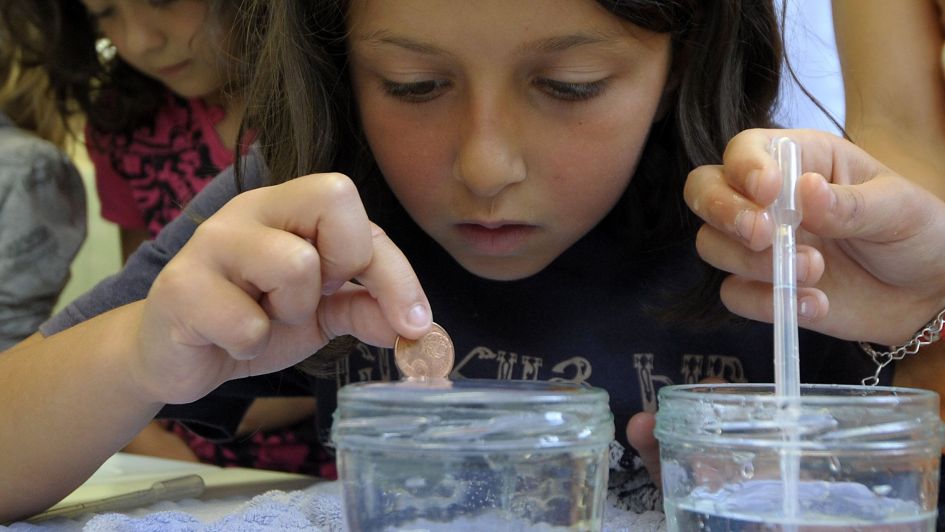Project closed | Project period: 2006–2013
NaWi – How does it work?
Experiment kits for elementary school children

How is dew formed? Why do icebergs float? What can be used as invisible ink so it can only be read when the paper is heated? Elementary school children found answers to these and other questions from the world of science in a fun way with the help of NaWi experiment kits. A total of 46 experiment set-ups on the topic areas of air, water, and food introduced up to 30 kids per experiment kit to basic scientific knowledge.
Working Area:
Education
Region/Country:
Germany
Project period:
2006–2013 (closed)
Experiment kits for the classroom
The goal of NaWi was to impart scientific knowledge on elementary school children through experiments, with an emphasis on the independent use of the contents of the kits. The concept foresaw that elementary school teachers would take part in an initial training session on how to work with the experiment kits, which were then provided free of charge to the schools. The key component was of course the implementation of the experiments during lessons. A cooperative agreement spanning one year between the school and Siemens Stiftung showed a desire for sustainability and increased the verifiability of learning success.
Each series of lessons consisted of an informative introductory session and up to three course subjects of choice. The teachers at the participating schools were able to take a glimpse of the various experiments over the course of several afternoons. The approach was action-oriented: as many pupils as possible should be able to conduct experiments themselves! The development was spearheaded by the Institute of Didactics in Chemistry at the Johann Wolfgang Goethe University Frankfurt. The participation and provision of the kits were free and the participants received a certificate of completion.
Project initiator Wissensfabrik
Wissensfabrik – Unternehmen für Deutschland e.V. is an open platform for companies, educational institutions, and initiatives that want to support and share knowledge to foster economic development. Over 70 companies and foundations in the network advocate for more education and entrepreneurship in Germany. As part of over 2,000 educational partnerships, Wissensfabrik is dedicated to the intermediation of science, technology, and the economy. One particular area of emphasis is early childhood education, which involves working with kindergartens and elementary schools. In addition, Wissensfabrik supports young entrepreneurs during their first steps toward autonomy through a mentoring program. Since 2007, the Wissensfabrik has worked with Handelsblatt to put on the WECONOMY start-up competition.


